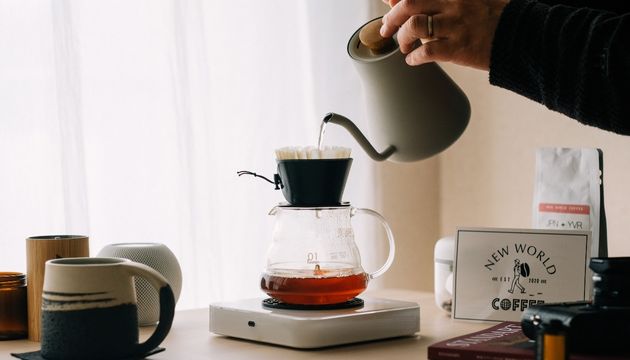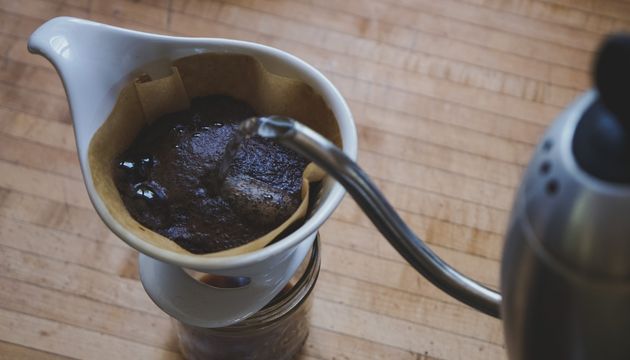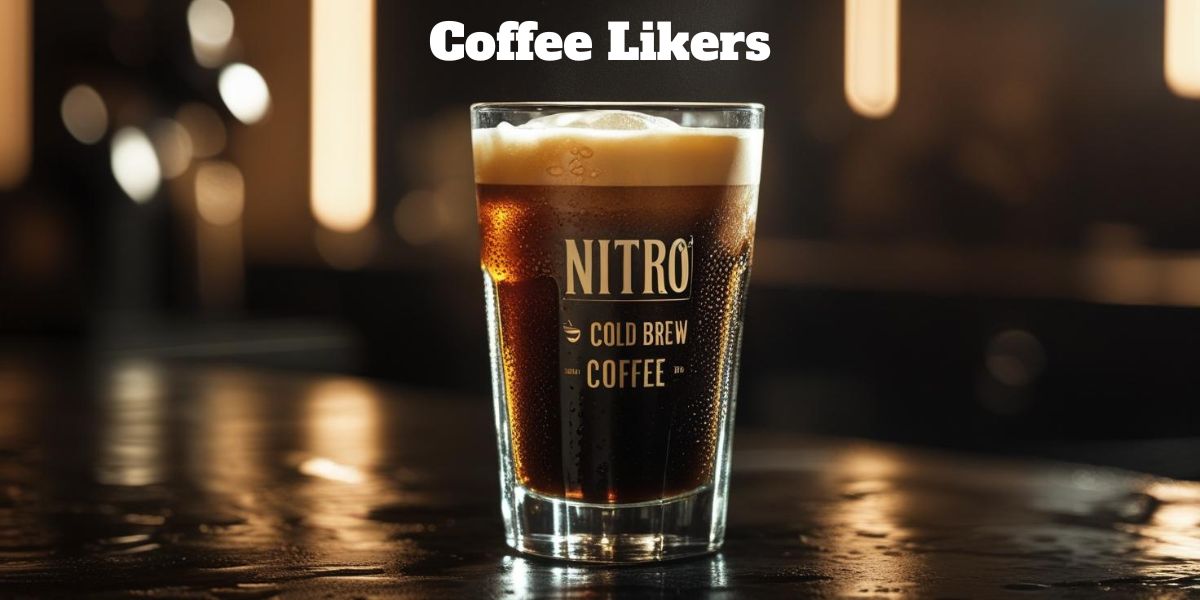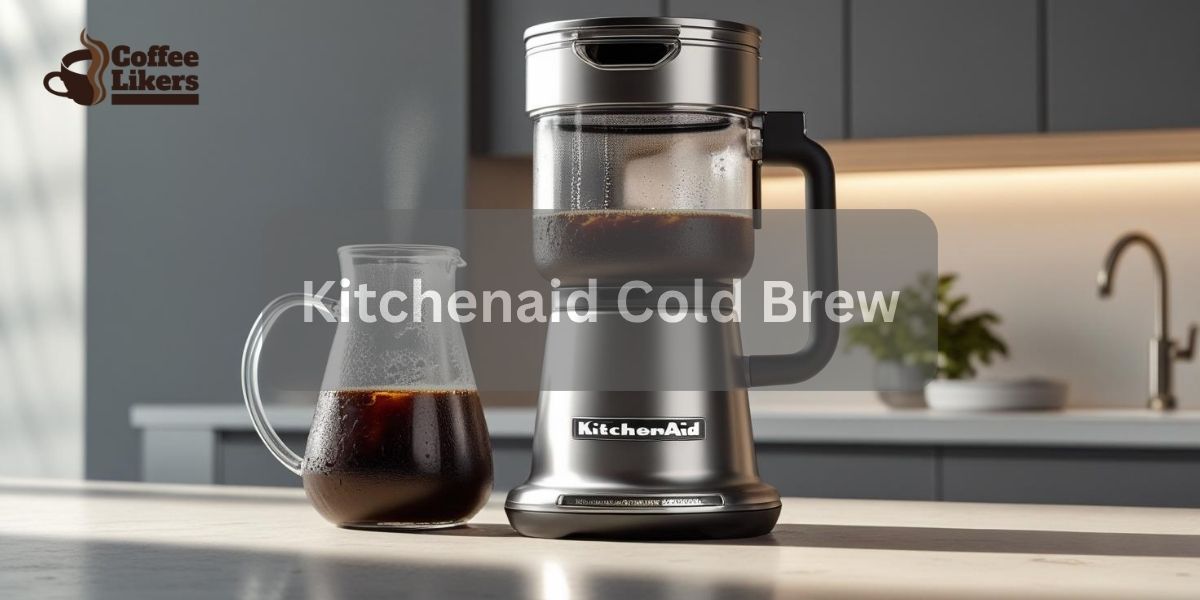Introduction
A filter with pour over coffee is a popular equipment that allows a high-quality cup of coffee in a specific brew time. But is it necessary? In this blog post, I’ll write on whether should I use a filter with pour-over coffee and explore the pros and cons of using a filter with pour-over coffee and whether or not you should bother using one at coffee shop.
I’ll also provide tips on choosing the right type of filter and using it to achieve the best results from making pour over coffee. So whether you’re a coffee lover looking for the perfect cup of coffee every time, or want to make sure your coffee is as clean as possible, read on to learn more about using filters with pour over brewer and the ratio of coffee to water.
About Coffee Filter
A coffee filter is an essential piece of equipment for any home coffee brewer (coffee at home). It’s used to remove the impurities and sediment from any grind size of ground coffee before it goes into your cup or pot and amount of coffee. Plus, they help to reduce unpleasant odors from your specialty coffee. And also keep your kitchen clean.
Should I use a filter with pour-over coffee? There are a number of different types of coffee filters, but they all have one common goal – to make good-tasting coffee by pouring water into an electric drip coffee maker to make coffee.
There are three primary types of coffee filters – paper, metal, and cloth. Paper filters absorb the most flavor of your coffee and coffee oils from your good cup of coffee, while metal filters leave more bitterness behind delicious coffee. Cloth filters generally offer the best balanced coffee between flavor and health concerns like bacteria growth.
What Is Pour Over Coffee Filter
A pour-over coffee filter is a thin, paper sleeve that is inserted into the top of a pot of water to allow for optimal extraction and flavor of coffee to find. Pour overs are often considered the standard by which other types of coffee brewing methods are judged great cups of coffee. They are simple to make, versatile in terms of ingredients and flavors, and typically produce a more nuanced cup than drip or French press brews taste of the coffee.
The best pour over coffee filter paper is a type of coffee filter that allows water to slowly drip through it while the coffee is brewing and make a pour-over. This method produces a higher quality cup of coffee than traditional automatic drip machines because it allows more control over the temperature and extraction of the flavor of the coffee beans way to brew a cup. Pour-over filters are also easier to clean than regular filters, which makes them ideal for people who care about their environment and what coffee can make.
Why Use A Pour-Over Filter?
Pour over filtered coffee offers numerous benefits over traditional brew coffee methods.
- They result in higher-quality coffee because the beans are fully exposed to water at all times throughout their brewing process and use a pour.
- This allows them to develop their full flavor profile – from bitter notes on the front end to sweetness on the back end – without being overwhelmed by the bitterness or sourness of coffee flavor.
- Finally, most cappuccinos made with a pour-over can easily compete with those made using espresso machines and pour over brewing.
The Role Of A Pour-Over Coffee Filter In A Pour-Over Coffee
A pour-over coffee filter is a specially designed piece of equipment used to improve the quality and taste of your pour-over coffee would Melitta coffee filters. Should I use a filter with pour-over coffee? Pour-over coffee is made by using hot water, ground beans, and a fine mesh strainer to slowly drip the brewing liquid over the grounds while you wait for steeping your coffee. Let the coffee bloom first. Then they produce a richer flavor than conventional drip or French presses coffee you use the side of the filter.
Filtering out sediment (tiny pieces of plant material that settle at the bottom of your cup), plus improving drainage and saturation levels throughout the grinds helps bring out these flavors in particular the best coffee. A good pouring method – slow down as you begin dripping to ensure even distribution; tamp gently after each drop – will also help prevent bitterness from building up in your cup with much coffee.
The role of a pour-over coffee filter is twofold: first, it improves extraction by removing larger particles before they reach your lips; second, it traps any trapped oils or moisture so those compounds cannot make their way into your drink with pour the water. Together, these factors lead to increased flavor accuracy and consistency across different batches brewed using this technique to make pour-over coffee.
So if you’re looking for an intensely flavored espresso that showcases all those unique complexities found only in freshly ground beans prepared manually on the stovetop – look no further than a well-executed pour-over!
Should I Use a Filter With Pour-Over Coffee
There are pros and cons to using a filter with pour-over coffee. The pros of using a filter include improved flavor, reduced sediment, and the ability to make specific types of coffees (such as French press or Turkish).
However, there are also some downsides to using a filter. One downside is that filters can sometimes reduce the intensity of the coffee’s flavor.
Additionally, depending on which type of filter you use, it may also trap small particles in your coffee that can make it difficult to drink.
Finally, if you don’t clean your filter properly every time you use it, bacteria will grow and potentially affect the quality of your coffee. So overall – while there are benefits to using a filter with pour-over coffee – ultimately the decision comes down to personal preference.

What Kind Of Coffee Filters Are Generally Used For Pour-Over?
There are a variety of coffee filters available on the market but for pour-over brewing, most people prefer to use paper filters. As paper filters trap larger coffee particles and allow for a more thorough brew.
To use paper filters, you will need to pour about 2 ounces of water into your cup and place the filter over the top. Sift the ground evenly over the filter before placing it on top of the cup. Gently pour hot coffee over the grounds while pressing down with a spoon or spatula to push all of the liquid through the filter.
Let the coffee steep for 3-5 minutes before drinking. more oils and sediment in your coffee than other types of filters, which leads to a better cup of joe. They can also be easily replaced if they become contaminated with Coffee grounds.
Pour Over Metal Filter Vs Paper Filter
There are many different types of pour-over coffee makers available on the market these days, but the two most popular ones are pour-over and drip.
- Pour-over metal filters are usually considered to be superior to paper filters because they trap more of the flavor and aromatics in your coffee.
- This results in a much sweeter cup of coffee with deeper notes that you won’t find with a paper filter.
- However, there are some disadvantages to using a pour-over metal filter vs a paper one. Metal filters can be quite expensive, and they don’t work well with all types of beans (coffee beans that have high levels of oils will clog up a metal filter).
- They also require special brewing equipment, so if you’re not prepared to invest in this type of maker, then it’s probably best to stick with a traditional drip brewer.
What Is The Golden Ratio For Pour Over Coffee?
When it comes to pour-over coffee, the golden ratio can be used to achieve a well-balanced cup of coffee with the right amount of acidity and bitterness. To create a perfect cup of pour-over coffee using the golden ratio, start by measuring out your water volume (in ounces).
Then divide this number by your bean’s weight (in grams), and round up if needed. This will give you your starting ratios for both wet grounds and flavorings. Next, add each flavor or concentrate according to its own specific recipe or proportionate dosage chart. Once all ingredients are combined, bring the mixture to a boil before brewing as per usual.
There is no definitive answer to this question. However, many baristas and coffee enthusiasts believe that the golden ratio for pour-over coffee is 1:2.5 or 2:3. This theory suggests that the optimum dose of water should be poured over the grounds in such a way that it covers two-thirds of them, with the remaining third exposed to air. By following this formula, you ensure consistent extraction and maximized flavor potential from your beans.
How To Choose The Right Filter For Your Brewing Method And How To Properly Install It
Choosing the right filter for your brewing method is essential if you want to brew a delicious cup of coffee. There are a variety of different types of filters available on the market, and it can be hard to decide which one is best suited for your needs. It’s important to choose a filter that fits your brewing method and preferences, as well as the type of coffee you’re Brewing.
Here are some factors to consider when choosing a filter:
1. Water Capacity: The bigger the water capacity, the more room there is for sediment and debris to build up in your machine. Filters with larger water capacities will require less frequent replacement.
2. Connection Type: Some filters have connections that allow them to be installed using standard household plumbing tools (without any special skills or knowledge). Others require installation by an expert due to their specialty (such as high-pressure water filtration).
3. Flow Rate: The higher the flow rate, the faster water will pass through the filter. This can be important if you’re concerned about clogging or overfilling your machine’s filters.
4. Material Type and Construction: Filters made of paper, cloth, or metal are all available in various styles and materials. Some are more affordable while others offer better performance. It’s important to choose a filter that fits both your needs and budget.
Final Thoughts
Using a filter with your pour over method coffee is a great way to improve the taste and quality of your great coffee. Not only will using a filter make your coffee taste better, but it can also help to prevent clogging and scale buildup in your brewer.
When choosing a filter or permanent filter, be sure to select one that is compatible with the type of pour-over method you are using. For example, if you are using a French press, you will want to choose a filter that is designed for French press coffee.
If you are using a drip machine, you will want to choose a filter that is designed for drip coffee. by following these simple tips, you can enjoy a delicious cup of pour over coffee every time.
In this article, we have discussed, should I use a filter with pour-over coffee. Thanks for visiting our site: https://coffeelikers.com





Leave a Reply